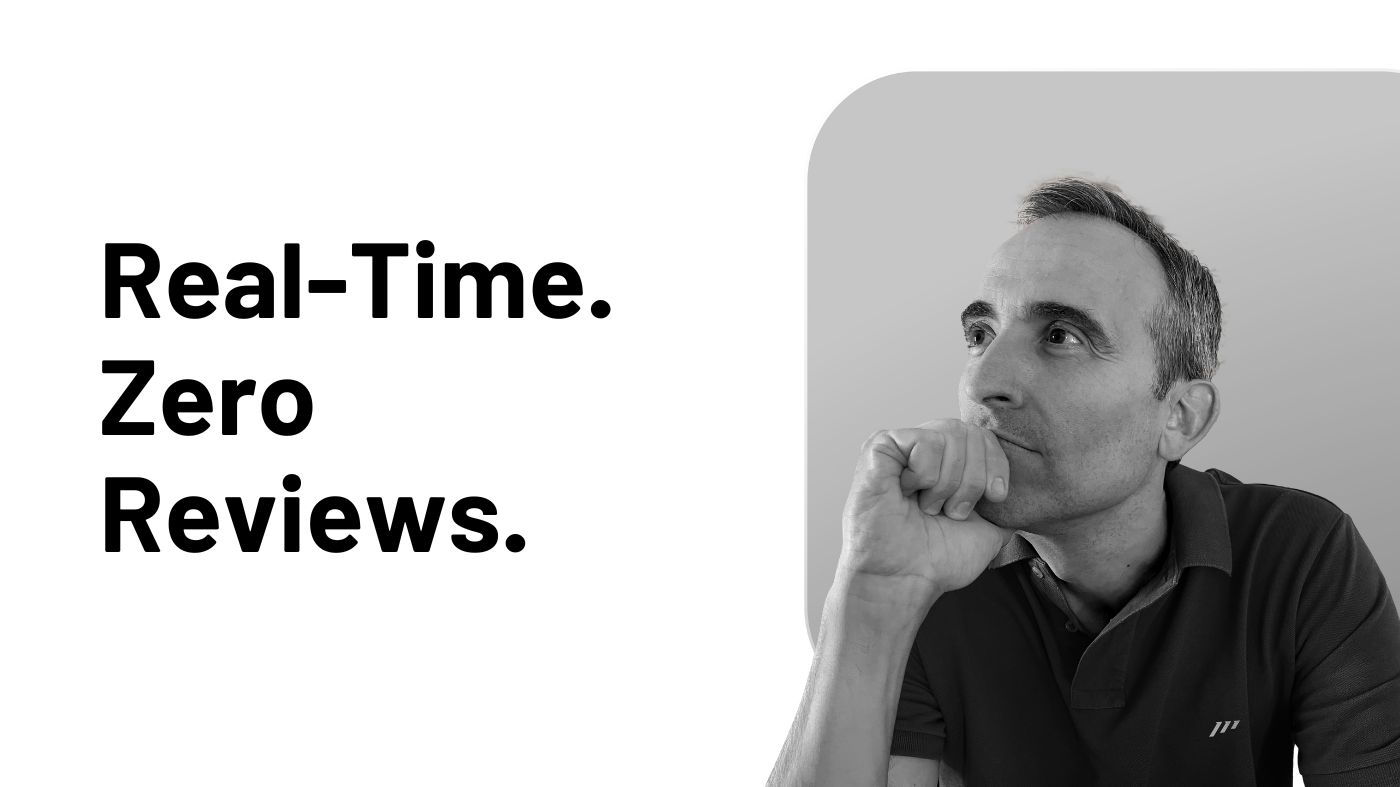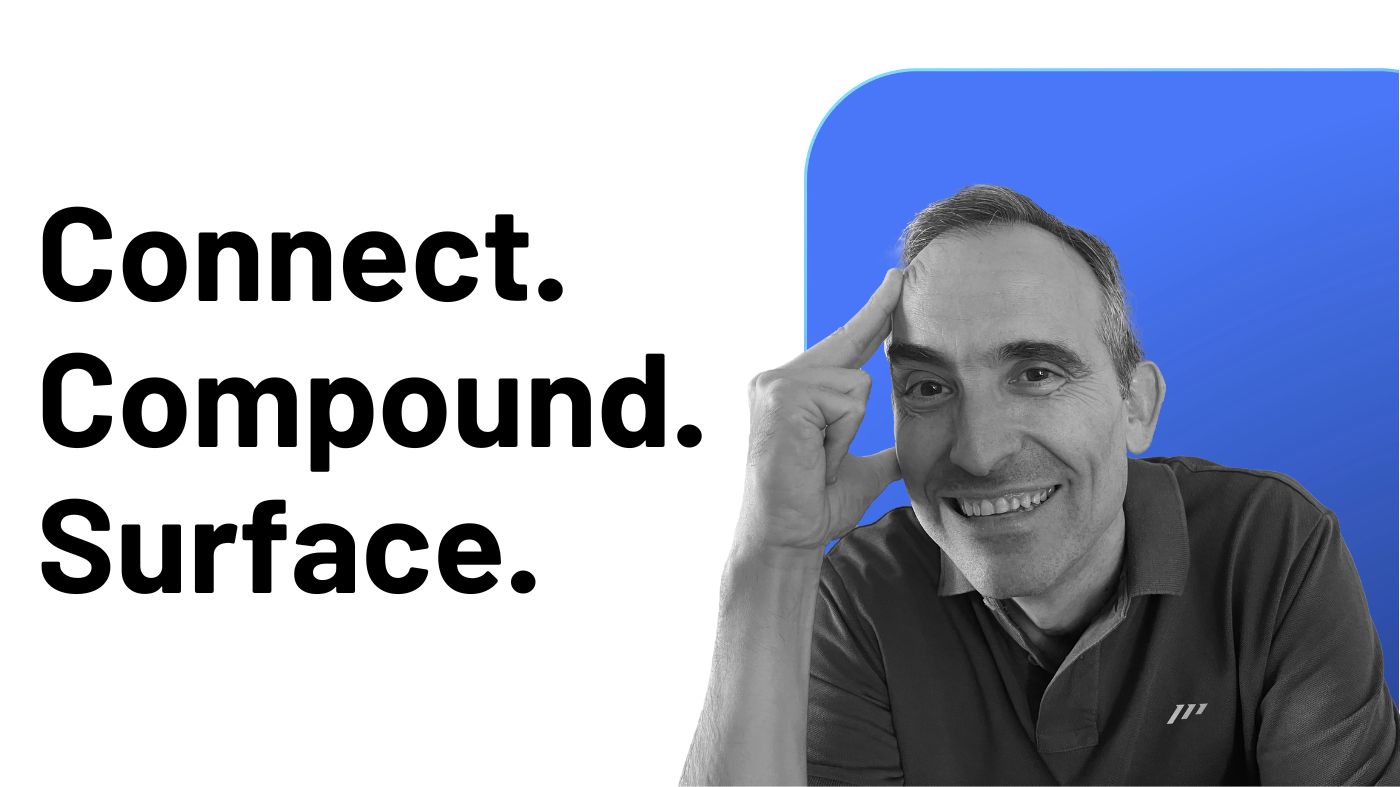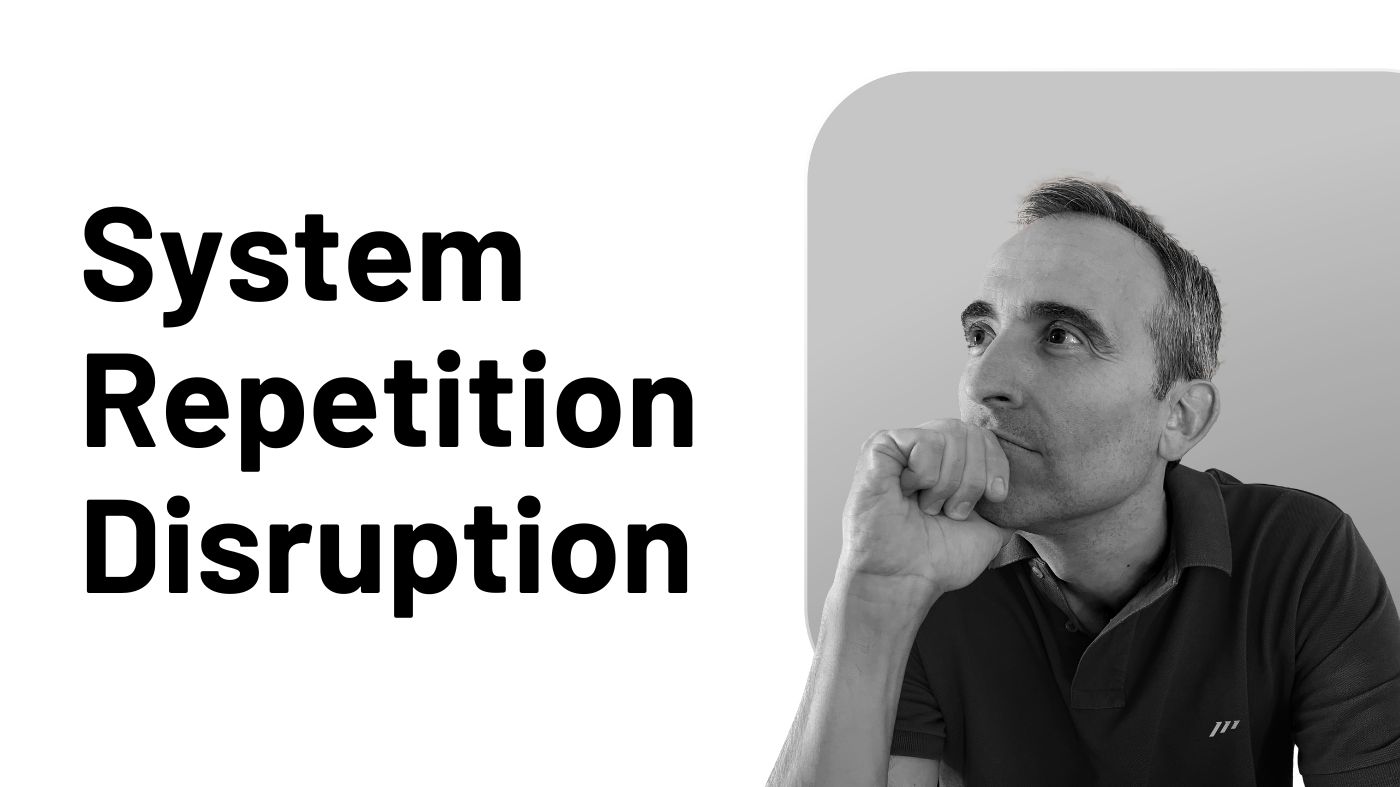Almost every productivity methodology you’ve encountered likely emphasizes the importance of weekly reviews. From GTD® to Agile frameworks, they all insist that without regular reviews, your productivity system will fail.
I’m here to challenge that assumption.
After decades of experience working with busy professionals, I’ve discovered something revolutionary: when you build the right system, reviews become unnecessary. In fact, they can actually slow you down.
Before we dive deeper, let me clarify: This article focuses specifically on personal weekly reviews; the ones you do to maintain your individual productivity system. Team reviews are a different matter that deserves its own dedicated discussion (though I’ll hint that ICOR®’s approach to team reviews is equally transformative, and I’ll explore that in a future article).
Think about it: Why do we need reviews in the first place?
They exist because things get outdated, disorganized, or fall through the cracks.
But what if I told you that with a properly designed productivity system, nothing ever gets outdated or disorganized in the first place?
That’s not just theory. It’s exactly how I run my four different businesses simultaneously.
I haven’t done a formal weekly review in decades, yet my productivity system runs more smoothly than ever. Everything stays current, organized, and actionable without the need for dedicated review sessions.
The secret lies in understanding the difference between periodic maintenance and real-time systems.
Just as modern cars have sensors that continuously monitor performance rather than waiting for scheduled checkups, your productivity system should work the same way: constantly updating and adjusting through natural interaction.
In this article, I’ll show you why traditional reviews are becoming obsolete and how you can build a self-maintaining productivity system that eliminates the need for formal review sessions altogether.
Get ready to save hours of your time while maintaining better control than ever before.
Let’s dive in!
The Problem with Traditional Reviews
Let’s be honest: weekly reviews are a productivity paradox.
You’re taking time away from actual work to organize… your work.
Think about what typically happens during a weekly review:
-
You spend hours going through incomplete tasks.
-
You reorganize projects that have drifted off track.
-
You process accumulated information that’s been piling up.
-
You try to remember what happened in the past week.
-
You struggle to plan the week ahead with outdated information.
It’s essentially a weekly game of catch-up, and here’s why that’s problematic for busy professionals.
The Batch Processing Problem
Traditional reviews treat productivity like old-school batch processing: storing up information and tasks throughout the week, then dealing with them all at once.
This approach might have made sense in the paper-based era, but in today’s fast-paced digital world, it’s remarkably inefficient.
The Time Drain
Most productivity methods recommend blocking 2-3 hours for a proper weekly review.
That’s up to 156 hours per year (nearly a month of workdays) spent just organizing your work instead of doing it.
As a busy professional, can you really afford this luxury?
The Cognitive Load
Perhaps the biggest issue is the mental burden.
When you rely on weekly reviews, you’re forced to hold information in your head until review time.
This creates constant low-level anxiety about things potentially falling through the cracks. You’re never quite sure if everything is up to date until your next review session.
The Currency Problem
By the time you get to your weekly review, much of the information you’re processing is already outdated.
In our rapidly changing business environment, waiting up to seven days to process and organize information means you’re always operating on old data.
The Motivation Challenge
Let’s be real: weekly reviews often get postponed or skipped entirely.
Why?
Because they feel like a chore, and when you’re busy (always, because that’s what you are: a busy professional), they’re usually the first thing to drop off your calendar.
This creates a vicious cycle where skipping reviews makes your productivity system more disorganized, which makes the next review even more daunting.
What busy professionals need isn’t a better way to review. It’s a productivity system that eliminates the need for reviews altogether.
In the next section, I’ll explore how real-time systems offer exactly that solution.
Understanding Real-Time Systems
Think about how you operate your smartphone.
You don’t schedule a weekly review to check all your notifications, organize your apps, or update your settings. Instead, you interact with it naturally throughout the day, making small adjustments as needed.
That’s exactly how a real-time productivity system should work.
A true productivity system is more than just a collection of tools and workflows. It’s an interconnected environment that responds to your interactions, updates itself through natural use, and maintains organization without extra effort.
When designed correctly, your productivity system becomes like a living organism that evolves and adapts with you, rather than a machine that needs regular maintenance.
“In the modern world, the real-time beat batch every single time.” — Naval Ravikant
The magic happens through natural interaction.
Every time you engage with your productivity system, you’re simultaneously maintaining it:
-
Reading an email becomes part of inbox processing.
-
Completing a task automatically updates project status.
-
Adding a note instantly connects to related information.
There’s no need to “catch up” later because everything stays current through your normal daily workflow.
Think of it like modern banking versus the old checkbook-balancing routine.
Remember those days of saving all your receipts and spending hours reconciling them weekly?
Now, with digital banking, every transaction updates your balance instantly. You always know exactly where you stand without dedicated review time.
The same principle applies to your productivity system.
Instead of batch processing during weekly reviews, you maintain clarity through constant micro-updates that take seconds, not hours. These small interactions compound throughout your day, keeping your productivity system perpetually organized and up-to-date.
When your productivity system runs on autopilot this way, you never need to remember to do a review. You always know the current state of your projects and can trust that nothing is falling through the cracks.
Most importantly, you can focus your energy on execution instead of organization.
This is the fundamental shift that ICOR® brings to personal productivity.
In the next section, I’ll show you exactly how it works.
How ICOR® Eliminates the Need for Reviews
ICOR® transforms the concept of reviews by embedding them into your natural workflow.
Instead of setting aside time to review your productivity system, your productivity system stays current through normal daily interactions.
Here’s what makes this possible: ICOR® is designed around the way your brain naturally works.
When you receive new information or need to take action, you don’t wait for a designated review time: you process it immediately. ICOR® follows this same intuitive pattern.
“The best systems are the ones that disappear.” — James Clear
Let me give you a concrete example.
In a traditional productivity system, you might capture tasks throughout the week, then spend time during your weekly review organizing them into projects and priorities.
With ICOR®, the moment you capture a task, you’re prompted to connect it to its proper context:
-
Is it part of an existing project?
-
Does it align with your current goals?
These quick decisions take seconds and become second nature.
The same applies to information management.
Rather than collecting notes and documents to organize later, ICOR® guides you to process and connect information as it arrives.
Each piece of information finds its natural home immediately, eliminating the need for later reorganization.
This real-time processing happens naturally because ICOR® leverages what we call “micro-moments”, those brief interactions you have with your productivity system throughout the day.
Every time you touch your productivity system, whether adding a task, checking a project, or capturing information, you’re automatically maintaining and updating it.
There’s no extra effort required; the maintenance happens through the interaction itself.
The result?
By Friday afternoon, there’s nothing to review.
Your projects are already updated, your tasks are organized, and your information is where it needs to be.
You can start your weekend knowing everything is in order, without spending hours in a formal review session.
Think about it this way: You don’t need a weekly review to know what’s in your bank account because your banking app updates in real-time.
ICOR® brings this same real-time clarity to your entire productivity system.
The Benefits of a Review-Free System
When you eliminate the need for weekly reviews, you gain much more than just extra time in your calendar.
The benefits ripple through every aspect of your work and mindset.
The most immediate impact is psychological:
-
That nagging feeling that you should be reviewing your system? Gone.
-
The guilt about skipping another weekly review? Vanished.
-
The anxiety about things potentially slipping through the cracks? Eliminated.
Your mind is free to focus on what truly matters: doing the actual work.
“Stop organizing your work. Start doing your work.” — Jason Fried
Energy management is another crucial benefit.
Traditional reviews are mentally draining because they force you to context-switch repeatedly, jumping between different projects, tasks, and information streams all at once.
With a self-maintaining productivity system, you process things in their natural context, when your mind is already engaged with that particular topic or project.
The time savings are substantial, but they go beyond just eliminating those 2-3 hours of weekly review time.
You also save countless minutes throughout the day because you’re not constantly wondering where things stand or trying to remember what needs to be reviewed later. Everything is always current, always clear.
Perhaps most importantly, you develop a deeper trust in your productivity system.
When you know your productivity system is continuously up to date through natural interaction, you stop second-guessing yourself.
This trust creates a positive feedback loop: the more you trust your system, the more effectively you use it, and the more reliable it becomes.
For busy professionals, this shift from periodic reviews to continuous maintenance is transformative.
Your productivity system becomes a trusted partner that works with you in real-time, rather than a demanding tool that requires regular maintenance sessions.
Making the Transition
Moving from a review-based productivity system to a self-maintaining one doesn’t happen overnight. But the path is simpler than you might think.
Start by changing how you interact with your productivity system.
Instead of thinking “I’ll organize this later during my weekly review,” ask yourself: “How can I process this properly right now?”
The key is to make small, intentional changes to your workflow:
-
When you capture a new task, take the extra few seconds to connect it to the right project immediately.
-
When you complete a task, update its status right away.
-
When you add a note, link it to related information in the moment.
These micro-actions might feel like extra work at first. But remember: you’re not actually doing more work. You’re just shifting when you do it.
Instead of saving up organizational tasks for later, you’re handling them in real-time, when the context is fresh in your mind.
“Change is hard at first, messy in the middle, and gorgeous at the end.” — Robin Sharma
Trust is crucial during this transition.
There will be moments when you feel the urge to do a weekly review “just to make sure.” Resist this temptation.
Your productivity system is already current because you’re maintaining it through natural interaction. Those urges will fade as you build confidence in your new workflow.
Most importantly, be patient with yourself.
You’re not just changing a habit: you’re transforming your entire approach to productivity.
It’s normal to occasionally slip back into old patterns. When this happens, simply return to the core principle: process and organize in the moment, not later.
The beauty of this transition is that it builds on itself.
Each time you successfully process something in the moment, you strengthen your trust in the productivity system. Your productivity system.
As your trust grows, maintaining the productivity system becomes increasingly natural and effortless.
Think of it like learning to ride a bike. At first, you’re conscious of every movement. But with practice, it becomes automatic.
Soon, you’ll wonder how you ever managed with weekly reviews at all.
The Future is System-Based
The era of weekly reviews is coming to an end, and it’s about time.
In today’s fast-paced business world, the idea of stopping everything to review your productivity system feels increasingly outdated. It’s like pressing pause on a streaming video when we should be experiencing content in real-time.
The future belongs to self-maintaining productivity systems that work the way our brains work: processing and organizing information naturally, in the moment.
This isn’t just a better way to manage productivity; it’s the only way that makes sense for busy professionals in our rapidly evolving digital age.
ICOR® leads this evolution by eliminating the artificial separation between doing work and organizing work.
When your productivity system maintains itself through natural interaction, you’re free to focus on what truly matters: moving your projects forward and achieving your goals.
Think about how liberating this is:
-
No more blocked Friday afternoons for reviews.
-
No more Monday mornings spent catching up.
-
No more guilt about skipping another weekly review session.
Just a smooth, continuous flow of productivity that matches the natural rhythm of your work, brain, and life.
The best part?
This isn’t some far-off future: you can make this transition today. In fact, now!
By shifting from periodic reviews to continuous maintenance, you’re not just saving time; you’re upgrading your entire approach to productivity and how you work and deliver.
Remember: a truly effective productivity system shouldn’t demand your attention. It should fade into the background, supporting your work without requiring constant maintenance.
That’s the promise of a review-free system, and that’s the future ICOR® delivers today.
The question isn’t whether to make this transition. The question is: why haven’t you started already?




